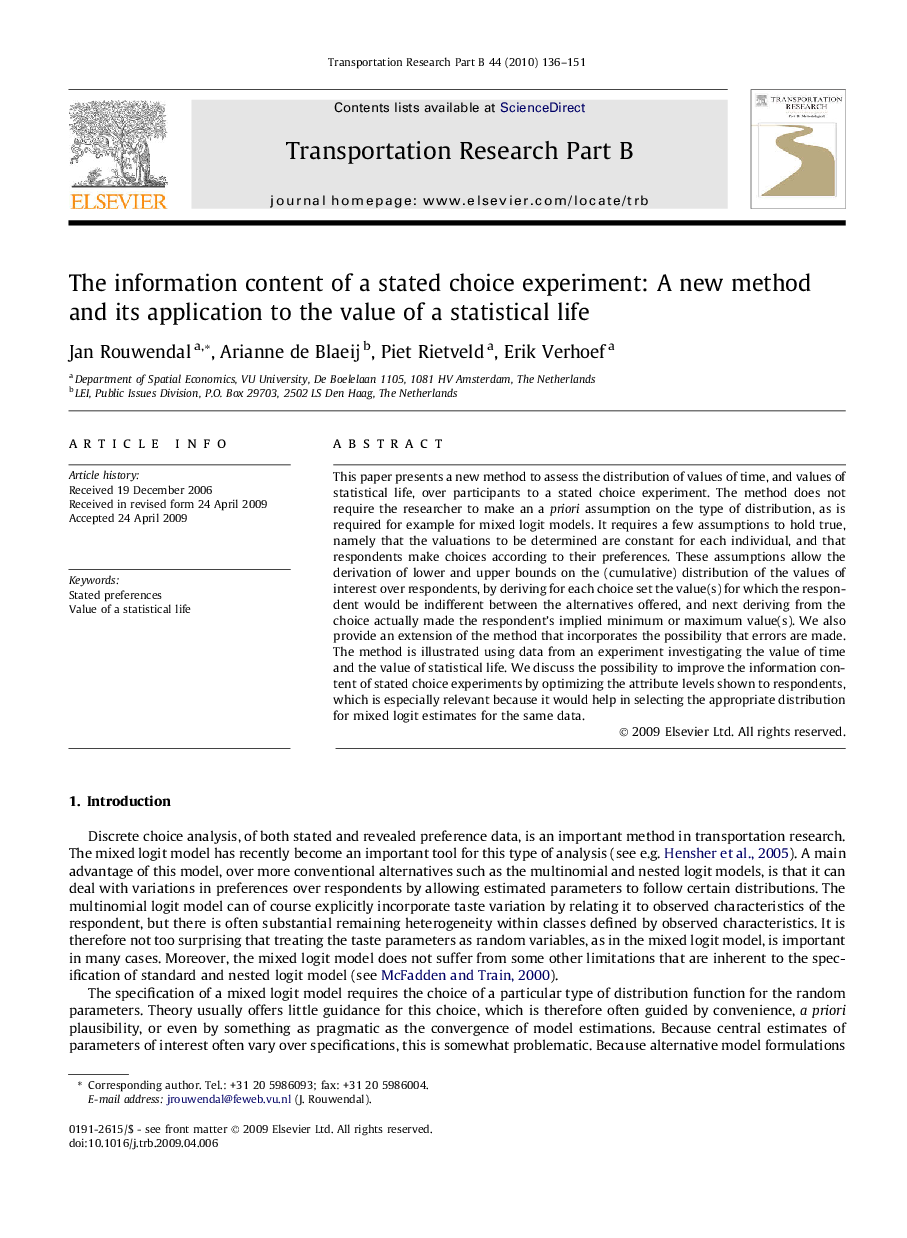| Article ID | Journal | Published Year | Pages | File Type |
|---|---|---|---|---|
| 1132477 | Transportation Research Part B: Methodological | 2010 | 16 Pages |
This paper presents a new method to assess the distribution of values of time, and values of statistical life, over participants to a stated choice experiment. The method does not require the researcher to make an a priori assumption on the type of distribution, as is required for example for mixed logit models. It requires a few assumptions to hold true, namely that the valuations to be determined are constant for each individual, and that respondents make choices according to their preferences. These assumptions allow the derivation of lower and upper bounds on the (cumulative) distribution of the values of interest over respondents, by deriving for each choice set the value(s) for which the respondent would be indifferent between the alternatives offered, and next deriving from the choice actually made the respondent’s implied minimum or maximum value(s). We also provide an extension of the method that incorporates the possibility that errors are made. The method is illustrated using data from an experiment investigating the value of time and the value of statistical life. We discuss the possibility to improve the information content of stated choice experiments by optimizing the attribute levels shown to respondents, which is especially relevant because it would help in selecting the appropriate distribution for mixed logit estimates for the same data.
